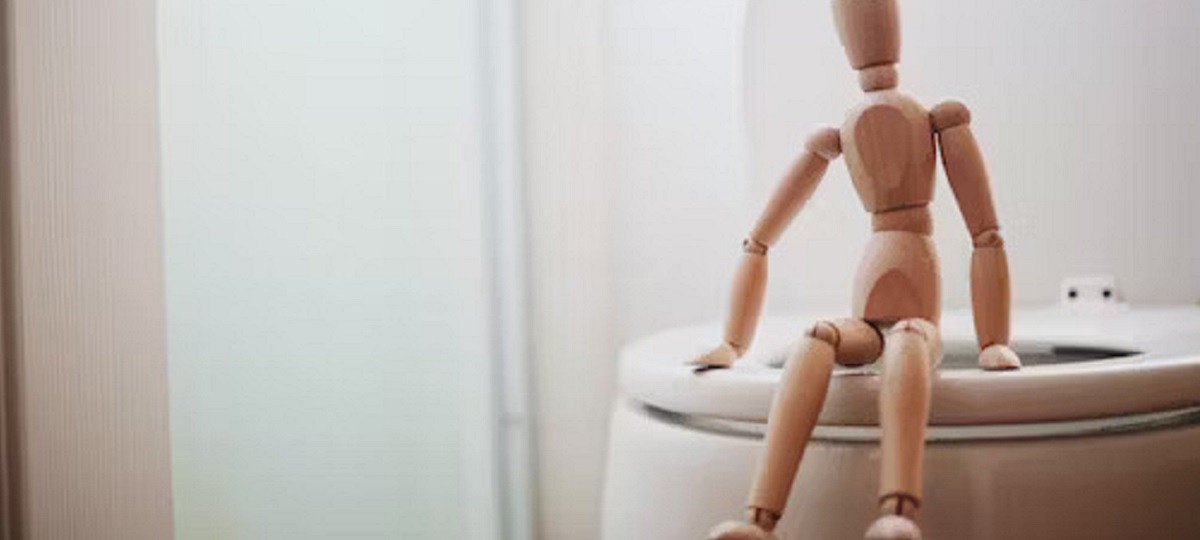Constipation can prove to be an unpleasant and frustrating ordeal, causing infrequent and difficult bowel movements. Should you find yourself struggling with constipation while seated on the toilet, fear not, for there are effective techniques you can readily employ to find immediate relief.
Understanding Constipation: Causes and Symptoms
Before delving into the techniques that offer respite from constipation, it is paramount to comprehend its causes and manifestations. Constipation may arise from various factors, including a lack of dietary fiber, inadequate water intake, a sedentary lifestyle, certain medications, and underlying health conditions. Common symptoms encompass infrequent bowel movements, hard and dry stools, straining during defecation, and a sense of incomplete evacuation.
Increase Fiber Intake
Diet plays a pivotal role in maintaining regular bowel movements. One of the most efficacious approaches to combat constipation is by upping your fiber intake. Fiber contributes bulk to the stool, making it easier to traverse the intestines. Foods abundant in fiber include fruits, vegetables, whole grains, and legumes. By incorporating these foods into your diet, you can regulate bowel movements and alleviate constipation.
Stay Hydrated
Dehydration can exacerbate constipation, making it essential to stay adequately hydrated throughout the day. Drinking a sufficient amount of water softens the stool and facilitates its passage through the digestive system. Aim to consume at least 8 to 10 glasses of water daily and avoid excessive consumption of diuretic beverages like caffeine and alcohol, as they may contribute to dehydration.
Try Natural Laxatives
Several natural laxatives offer relief from constipation. Prunes, for instance, are renowned for their laxative effects due to their sorbitol content, which helps soften the stool and promote bowel movements. Other natural laxatives encompass flaxseeds, aloe vera juice, and magnesium-rich foods. However, it is crucial to use natural laxatives in moderation and consult a healthcare professional if you have any underlying health conditions.
Exercise Regularly
Leading a sedentary lifestyle can contribute to constipation. Engaging in regular physical activity can help stimulate the muscles in your intestines and encourage bowel movements. Even light exercises like walking, jogging, or yoga can make a significant difference. Aim for at least 30 minutes of exercise most days of the week to promote better digestion and prevent constipation.
Practice Deep Breathing Techniques
Surprisingly, deep breathing exercises can aid in relieving constipation. Stress and anxiety can disrupt the normal functioning of the digestive system, leading to constipation. By practicing deep breathing techniques, such as diaphragmatic breathing, you can relax your body and mind, potentially easing bowel movements on the toilet.
Don’t Ignore the Urge
When nature calls, it’s crucial not to ignore the urge to have a bowel movement. Ignoring the body’s signals can lead to the reabsorption of water in the colon, making the stool harder and more challenging to pass. Make it a habit to use the restroom whenever you feel the need, as this simple act can help prevent constipation.
Create a Toilet Routine
Establishing a toilet routine can help train your body to have regular bowel movements. Try to visit the restroom at the same time each day, preferably after meals when the body’s natural gastrocolic reflex is more active. A consistent toilet routine can promote bowel regularity and reduce the likelihood of experiencing constipation.
Use Squatting Position
The conventional sitting position on the toilet might not be the most effective for complete bowel movements. Consider using a squatting position by elevating your feet on a small stool or using a specially designed squatting platform. This position aligns the rectum properly and eases the passage of stool, potentially reducing the chances of constipation.
Warm Beverage in the Morning
Starting your day with a warm beverage, such as hot water with lemon or herbal tea, can help kickstart your digestive system. Warm liquids can stimulate bowel movements and prepare your body for a morning visit to the toilet. Additionally, some herbal teas, like peppermint or ginger tea, have soothing properties that can aid in digestion.
Over-the-Counter Medications
In some cases, over-the-counter laxatives or stool softeners may be necessary to alleviate severe constipation. These medications can help in the short term but should not be used as a long-term solution. Always follow the recommended dosage and consult with a healthcare professional before using any over-the-counter medications.
Conclusion
Dealing with constipation on the toilet can be distressing, but by implementing these effective techniques, you can find relief and promote better bowel movements. Remember to increase your fiber intake, stay hydrated, and engage in regular exercise to maintain a healthy digestive system. Practice deep breathing techniques, create a toilet routine, and consider using a squatting position to ease bowel movements. By incorporating these strategies into your lifestyle, you can bid farewell to constipation and embrace a more comfortable and natural bathroom experience. As always, if you have persistent constipation or underlying health concerns, it’s essential to consult with a healthcare professional for personalized guidance and support.
